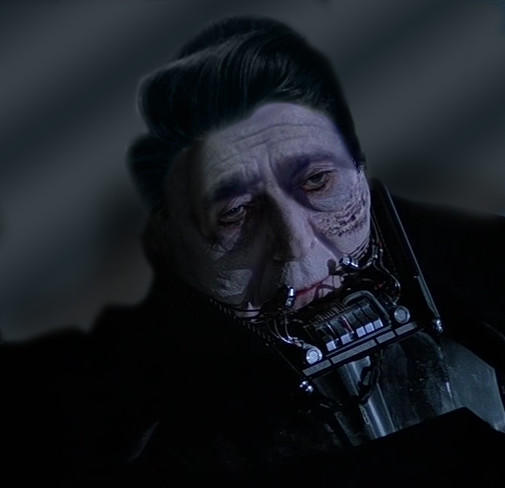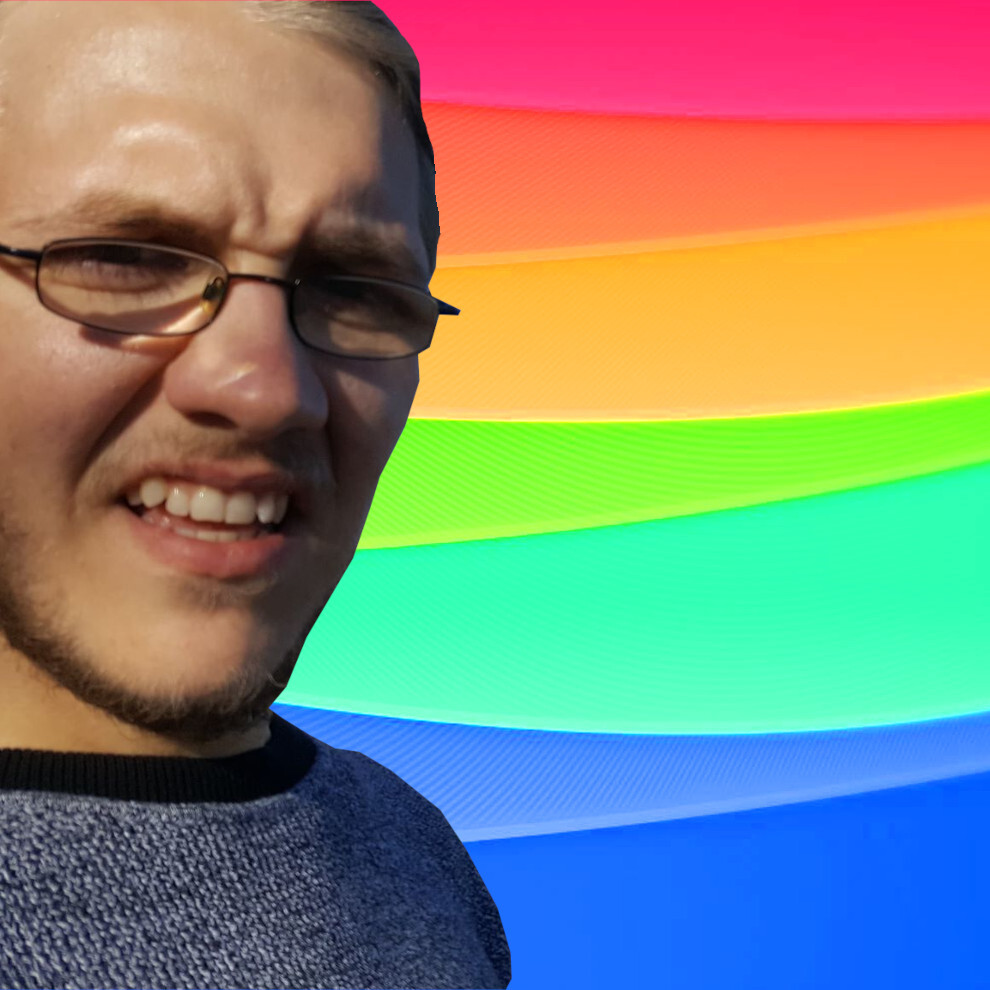People want to have it both ways.
"death of the artist" only makes sense in-so-far as you want to look at a text how it exists rather than the artist's own interpretation. It's more a thing with books, "death of the author", cause the author might say it means one thing but you can look at the text and question what it's actually saying, infer new meaning etc. Cause artists'/authors' intent may not actually have come through in the text. Like "You intended this but this is what it comes across in the book as".
But I think for the most part, there's no need to dismiss the artist/authorship completely cause it gets away where this thing has come from in the first place.
It's more a thing with books, "death of the author", cause the author might say it means one thing but you can look at the text and question what it's actually saying, infer new meaning etc.
Like Tolkien insisting that his books contained no allegory. The amount of accidentally allegorical content in LotR is staggering.
Yeah you can look at it as the result of someone's trauma from WW1/WW2 and dealing with Industrialisation. Hobbits are a reflection of Rural Britain and no one can say different
Tolkien said that his works didn't intentionally contain any specific allegories. In other words, Gandalf is not supposed to be a direct stand-in for Christ for example. But that doesn't mean that there aren't Christian influences on Gandalf that the reader can infer, along with other types of influences, or read into Gandalf futural aspects that didn't even exist at the time of writing. There is complexity to Gandalf.
He just didn't like simplistic meaning like that because it kills the depth and layers of interpretation to the story. Instead of saying "Gandalf is a fully fleshed out, independent character" people say "Gandalf is just Christ!" and either leave out or don't need or want the Gandalf character development because they already know he's just Christ.
I use that example specifically because he disliked how C.S. Lewis (close friend of Tolkien, by the way) made the Lion in Chronicles of Narnia a literal and direct allegory for Christ, like the Lion is literally Christ, which Tolkien found to be lazy and hated allegories for this reason.
Certain Tolkien nerds are so obnoxious about this, it's like a mantra. In a lot of online spaces if you ever try to talk about allegory in Lord of the Rings you'll get a dozen of these people responding purely to tell you Tolkien hated allegory. As though everyone isn't already aware.
Not only that, but artists absolutely embue elements from their subconscious into their work. When we talk about the author's intention, what we're really talking about is their ego's contribution to their work. They can give their works meaning that they didn't consciously intend or even that they disagree with.
i dont think u understand what death of the artist is. Also what makes post modern art art is that it was made to be art, the process of creation MAKES it art, the art IS the display, and creation of it regardless of the piece itself thats kinda what the whole fucking movement was about, I despise post modernism but fuck atleast criticize it from a point of understand not from a point of complete ignorance.
I would say yeah, art is about human connection, though also heavily about politics and culture. I'd venture to say that notions of separating art from those heavy hitters, politics and culture (which are arguably not even separate things in the first place, but I digress...), is largely a liberal capitalism thing and as unrealistic as most things about capitalism. Which, incidentally, is part of why it's so weird when people are like, "Stop making art political!!" Like it never wasn't political. It's just a question of how obvious it is to any given person or group.
In my experience around image generation tech, it appears like it's the sharing of cool generations among other people and the resulting human connection that is more attractive in the long-term than the "generate whatever" in private, which can be fun, similar as eating candy can be fun, but can get old fast if you overdo it. There's a lot within that subject to unpack, but I've seen others point out something that appears to be true to an extent, which is that people don't tend to be all that interested in others "AI art" and are more so interested in their own, which makes a kind of sense to me because the end result is usually shlocky flashy fast food "art" that might feel more meaningful to the person who spent hours experimenting with prompts to get to it. This might seem like a contradiction to the idea of sharing in "cool generations," but it seems to me that such sharing is in part about the sharing itself, not entirely about the perceived quality of the art. Similar to how people can go to a movie together and maybe they're critics about it or maybe they aren't, but either way, they have that knowing that they shared the experience of seeing it simultaneously and can talk about what that experience was like.
ai art is art because people are mad about it.
jokes aside, i think that machine art is going to basically just replace clip art and the like. it's like what happened to pottery. there are still artisinal potters (i love handmade pottery and the craft itself) but for everyday dinner plates you don't seek the connection and craftsmanship. you just need a plate.
some art has use-value as decoration (easily replaced with machines) and other art is about personal, emotional, or political communication (even if it could be replaced, it wouldn't be.)
Death of the artist mfers on their way to interpret art in the most dogshit way possible:
I found this article a really interesting read (52 min), it is a well-written dialectical take which one may find useful if not already read:
Artisanal Intelligence: What’s the Deal with “AI” Art? (2023)"
https://redsails.org/artisanal-intelligence/
Original from: https://polclarissou.com/boudoir/posts/2023-02-03-Artisanal-Intelligence.html
The same author has also written (which I have yet to read): https://polclarissou.com/boudoir/posts/2022-01-20-To-save-the-arts-we-must-kill-the-artist.html
Interesting article, I had no idea my own opinions were functionally art-luddite in nature. I never really made that connection. I don't think the writer of this piece fully grasps the frustration a lot of artists (myself included) have with AI art though. It isn't simply a case of "they took our jerbs!" but a case of cheapening the entire creative field to yet another treat printer. This author seems to think that artists are being condescending when they say that there's more value in random scribbles rather than AI art. It isn't. It's an improvement of a skill, there's a sense of satisfaction that cannot be obtained by simply typing in a prompt, a real genuine sense of improvement is one of the best ways to survive in our increasingly isolated and alienated world. And for a lot of artists, myself included, being an artist under capitalism sucks sure, but making it into a profit generating endeavour is the only real way to devote a significant amount of time to something like this.
CW: Suicide
Before I was a professional artist, I would work shitty jobs same as everyone else and I had daily thoughts of just dying. It was agony wanting to do more, anything more, and not having the physical or emotional energy after work to do it. If I had to go back to that, or ended up unemployed and homeless, I don't think I'd survive. Maybe that makes me weak or a labour aristocrat or whatever this author wants to call me, but acting like people's very real fear for their livehoods is just petty bourgeois reaction strikes me as very callous.
I think this author mistakes desperation for some kind of exceptionalism, and treats artists as a monolith who are all in favour of IP laws, instead of actively trying to assess the complex issues artists have with this new technology. They rightfully assess that the main reaction is due to a potential loss of livelihood, but they act as if artists are all wealthy petty-bourgeoise tyrants losing their small businesses, or hollywood types just waiting for their chance to make it big. They are talking about two very different issues here: Art under capital and workers losing their livelihood and ability to survive using their skillset, but constantly conflate the two. It's frustrating, because I agree with their overall point with regards to art under capital, but I'm so sick of this vague gesturing in the direction of "we should make a future where this problem doesn't happen." Like yeah, that's why we're here, on this website for leftists, we want to fix the problems caused by capitalism. But imagining some future where people can just draw art freely for fun and don't need to tie any material value to it, well that doesn't help me keep a roof over my head.
Or maybe I just completely misunderstood the article because as an artist, I'm clearly incapable of having a correct opinion about this.
i totally agree with you! https://www.marxists.org/archive/kim-jong-il/works/On-Fine-Art.pdf
I felt the same way. I would liken it to the author technically living in the same city, but they were describing the other side of it and mistaking their small sphere and local description for the rest of us in that city. Their idea of the art world was similar yet very foreign. A few proverbial landmarks could be seen from both our relative places, but they lost me with their inaccuracies so their critiques and conclusions didn't land.
Art has already been industrialized. Content, which is the only thing AI can make, is not all of art. Art and the creative fields are part of an evolutionary survival strategy to impart experiences to others. If you've ever wondered why the Greeks had only two genres, Drama and Tragedy, it is because Drama was about helping people navigate the world, and tragedy was a warning of what not to do and why. So if class consciousness will help people the most, then the most substantial form of art will pass that experience along (e.g., Social Realism). Modern narratives are mainly content—and we can see that they are unsubstantial because they are "just entertainment" (Fun fact: American films had their right to free speech revoked in 1952 for this reason). They exist for profit. Art is much more than that, and if art helps us, the working class, better navigate life with experiences we don't yet have, I would argue such art is inherently revolutionary. That is why the ruling class can't make new stories; they only make entertainment and content, lest they risk imparting valuable lessons to the working class. And yes, this is a summed-up version of a fascinating thread of soviet art philosophy but one that the author of that article has either never encountered or has a more limited audience (i.e. western lib artists) the article is applying to than let on in the preamble.
I think the author's perspective is the solution should aim towards the social organisation of workers (in this case artists) as a group in a step towards the worker's state; the technology is not the problem but the privatisation of the surplus value from socialised labour is. Art-luddites (if such a thing is even possible now) would actually be a good thing - they could threaten "machinary" to gain leverage for workers at large.
It is not one's personal failure for attempting to survive in a system that exploits one and their labour, neither is a recognition of any classes that we fit in that is not exclusively proleteriat. As individuals maybe our only realistic solution be attempts towards becoming petty-bourgoisie or highly sought after labour aristocrats - if not already there - (which will not mitigate sufficiently the contradictions) but as an organisation the scope is much much more.
We have to remember when we are reading more radical writing that they are trying to push where we could be as a society ie the opposite of tailism. However, we should always place those ideas in the context of our own realities and trial them where appropriate, and learn on the feedback from this process - that is the more scientific and dialectic approach.
Art-luddites (if such a thing is even possible now) would actually be a good thing - they could threaten “machinary” to gain leverage for workers at large.
At the risk of fedposting, if I ended up homeless and with nothing left to lose thanks to AI art, I probably would find some way to threaten the machinery that makes it happen.
You do raise a good point though. I might look into forming solidarity with other artists and maybe forming/joining some kind of union and push for education. The call for IP law to protect artists isn't a petty bourgeois action, it's one done because artists aren't educated on the other tools they could be using to ensure their livelihoods.
This was very very interesting
I realized that those fucking petit bourgies tricked me into being ableist and a liberal
I would have been right had I not been tricked
Fucking grifters, I knew it (before I was tricked)
NOOOOOOOOOO
From now on "art" bourgies shall face my RAGE
The painting in the meme isn't Rothko's, it's a Newman.
Also Rothko's paintings (and Newman's for that matter) are more complex than they seem to be. Their use of color is really amazing, which was highlighted when some of them had to be restored because right wing nutjobs vandalizes them (Rothko is Jewish). The conservators had a really hard time capturing the exact same color scheme








